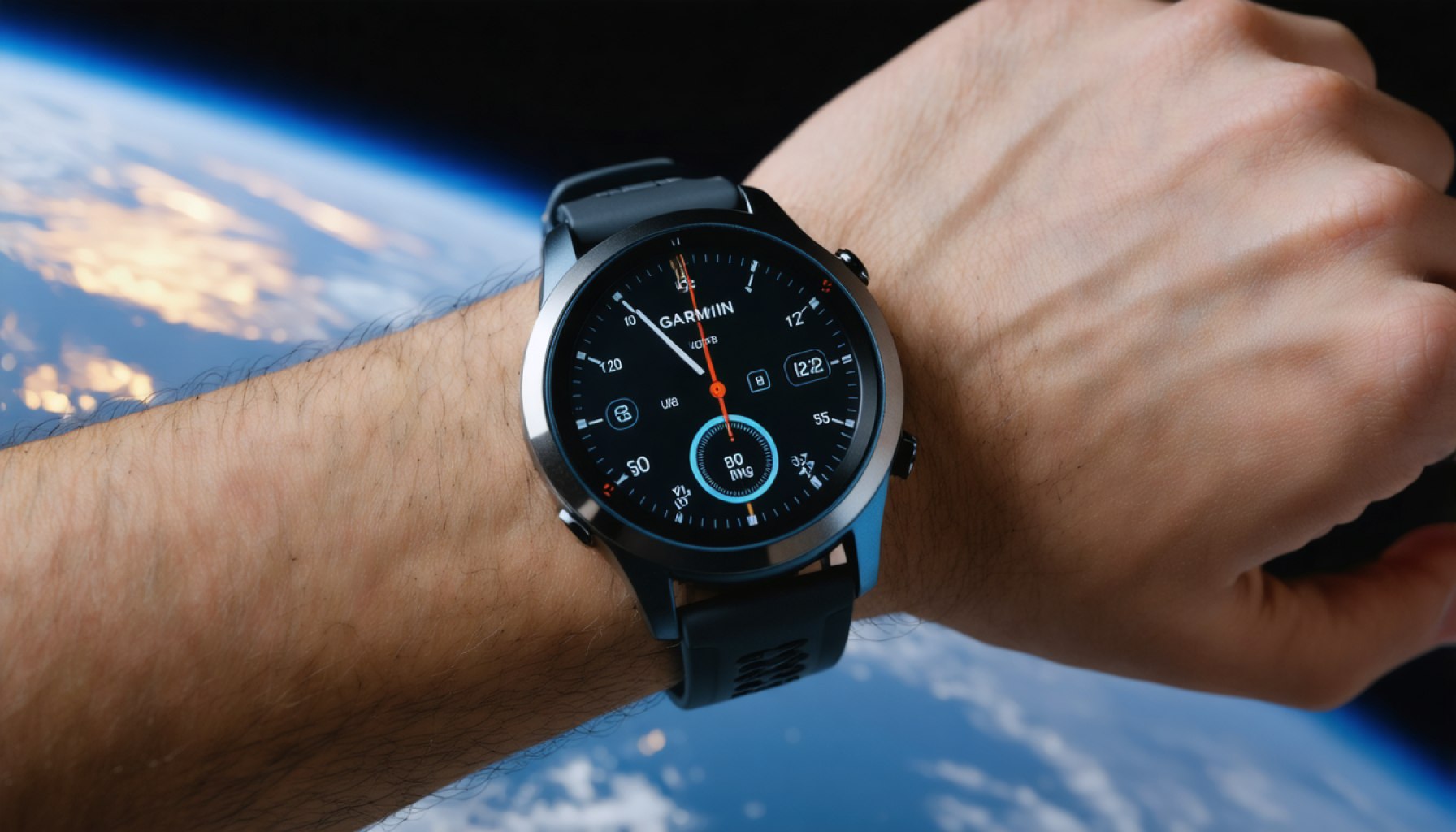- Garmin’s fēnix smartwatches have proven capable of enduring outer space conditions, set to aid astronaut health monitoring.
- The vital devices feature robust design and long-lasting battery life, supporting space missions like the pioneering Fram2 in polar orbit.
- The watches serve as data hubs, collecting real-time biometrics to predict and address potential health challenges for astronauts.
- Garmin Health allows integration of smartwatch data into various applications for wellness and monitoring via its API and SDK.
- This collaboration between TRISH, Garmin, and institutions like Caltech and MIT reflects a commitment to space health innovation.
- The initiative exemplifies a new frontier where technology and health research converge for advancements in both space and Earth applications.
In a groundbreaking fusion of technology and space exploration, Garmin’s fēnix smartwatches have embarked on a celestial journey, proving resilient enough to endure the fierce conditions of outer space. These watches are set to become an integral tool in the quest to safeguard astronauts’ health while unraveling the mysteries of the cosmos.
Imagine a spacecraft hurtling through the eerie vastness of space. Amid the hum of sophisticated machinery and the gaze of astronauts peering into the endless black, Garmin’s watches pulse quietly on their wrists. Designed with an ironclad robustness and a battery life as enduring as the space voyages they accompany, these smartwatches stand ready to clock life signs with unwavering precision.
The Translational Research Institute for Space Health (TRISH), supported by Baylor College of Medicine, has thrown its weight behind these technological marvels for a pioneering space mission named Fram2. As the first human spaceflight to venture into a polar orbit, Fram2 is not just a journey of exploration but a quest to collect critical physiological data that might reveal unforeseen truths about the human body in space.
Garmin’s fēnix watches transcend mere timekeeping; they are intricate data hubs, collecting real-time biometrics that can predict potential health challenges before they become critical. This capacity to forewarn and thus forearm astronauts promises to revolutionize not just future space endeavors but also carries implications for medical technology here on Earth.
Back on the ground, Garmin Health integrates smartwatch data seamlessly into applications designed for corporate wellness, health monitoring, and beyond. With the Garmin Health API and SDK, third parties can harness this stream of data, tailoring insights to meet their unique privacy and operational needs.
At the heart of this collaboration stands a universal mission: understanding and overcoming the constraints of environments as hostile as outer space. This partnership between TRISH, Garmin, and elite educational institutions like Caltech and MIT underscores a commitment to unprecedented innovation in space health.
The takeaway is exhilarating yet profound: as humanity reaches for the stars, Garmin ensures our vital signs make the journey too, monitoring life against the challenging backdrop of space. A step that sketches a promising horizon for technology – one where celestial aspirations meet health research, marking the new frontier of the 21st century.
How Garmin’s fēnix Smartwatches Are Redefining Space Exploration and Health Monitoring
The Cutting-Edge Technology of Garmin’s fēnix Smartwatches
Garmin’s fēnix smartwatches are more than just advanced timepieces; they are sophisticated pieces of technology equipped to support astronauts in space. These smartwatches have proven their resilience by enduring the extreme conditions of outer space. With robust designs and impressive battery life, they closely monitor astronauts’ vital signs, making them indispensable tools for space missions. Key features include:
– Durability: Engineered to withstand extreme temperatures, pressure, and radiation experienced in space.
– Battery Life: Exceptional longevity, designed to last the duration of lengthy space missions without frequent charging.
– Health Monitoring: Includes pulse oximetry, heart rate monitoring, and sleep tracking to keep astronauts aware of their health status.
Real-World Use Cases and Industry Trends
The use of Garmin’s fēnix smartwatches in space illustrates a growing trend in leveraging consumer tech in professional and challenging environments. Here are some potential earthbound applications:
– Corporate Wellness Programs: Businesses can use biometric data from smartwatches to design better wellness initiatives for employee health and productivity.
– Medical Monitoring: As the data collection from space translates into improved technology, these watches could aid in early detection of health issues on Earth.
– Sports and Fitness: Athletes and enthusiasts can benefit from accurate performance metrics in training and competitions.
Market Forecasts and Industry Trends
– Growth in Health Wearable Market: The global wearable technology market is expected to grow significantly, with smartwatches leading due to their multifunctionality.
– Space Exploration Collaborations: Partnerships between tech companies and space agencies are expected to increase as the demand for reliable health monitoring in space grows.
Security, Privacy, and Sustainability Concerns
While integrating technology like Garmin’s watches into health and space exploration systems, security and privacy of data are paramount:
– Data Security: Garmin’s API and SDK offer secure data integration options, ensuring user privacy and compliance with regulatory standards.
– Sustainability: Garmin is committed to sustainability, striving for eco-friendly materials in their products and sustainable business practices.
Pros and Cons Overview
Pros:
– Comprehensive health monitoring capabilities.
– Durable and reliable for extreme conditions.
– Long battery life suitable for extended missions.
Cons:
– Dependence on data privacy measures.
– Initial costs for high-tech integration can be high.
Actionable Recommendations
For those considering incorporating Garmin’s smartwatches into their health or wellness programs, consider these tips:
– Integration with Health Systems: Use Garmin’s API to seamlessly incorporate data into existing health monitoring systems.
– Personalized Health Plans: Tailor wellness programs using the detailed biometric data provided by the watches.
– Stay Updated: Keep an eye on Garmin’s updates, as ongoing research could unveil new features and insights.
Conclusion
Garmin’s partnership with TRISH, Baylor College of Medicine, and other prestigious institutions underscores the significant role technology plays in the future of space exploration and health monitoring. As these smartwatches continue to push boundaries in space, their real-world applications on Earth are equally transformative.
For more information about Garmin’s innovative products, visit the Garmin website.
